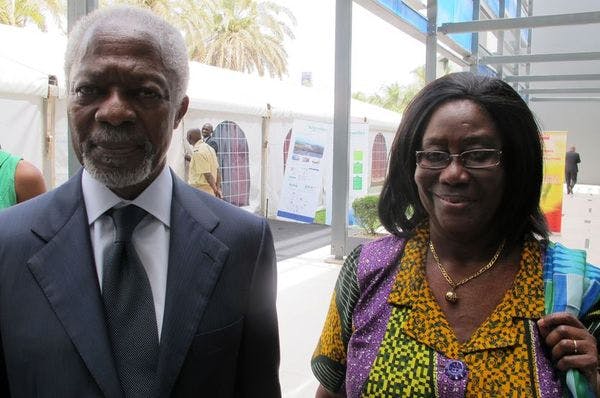Opening up the policy debate in West Africa
Two years ago, I was invited by Kofi Annan – the former UN Secretary-General – to join a group of high-profile political and public figures from West Africa to review the region’s drug problems and drug policies. We were to be among the first voices from the region calling for a change in approach, and it was a daunting task. But one that I was happy to accept.
This month, the West Africa Commission on Drugs launched its report – “Not Just in Transit: Drugs, the State and Society in West Africa”. The Commission is chaired by Olusegun Obasanjo (the former President of Nigeria), and includes Kofi Annan, the former President of Cape Verde, the former Prime Minister of Togo, and Oumou Sangaré (the Malian singer/songwriter), among others. After much deliberation and consultation – including visits to some of the most affected countries in the region – our final report makes clear calls in support of harm reduction and policy reform in West Africa.
We are clear that drugs represent a challenge and a threat in West Africa, but not one confined to transit and trafficking, but also to drug use and drug production. In the report, we conclude that drug use must be regarded as a public health issue – in line with the Support. Don’t Punish messages. We state that “the consumption and possession for personal use of drugs should not be criminalised” and that “West Africa must not become a new front line in the failed war on drugs”. We call on politicians across West Africa to change laws and policies that have not worked, and in partnership with civil society. Drugs have harmed many people, but bad drug policies are harming many more.
The launch event itself attracted a lot of local and international media attention. We launched a series of engaging videos to complement the report, and will spend the next year reaching out to governments to promote and discuss our recommendations.
The launch was followed by an engaging meeting for around 30 West African civil society partners to discuss the report and to forge a new drug policy network for the region. I was privileged to be part of this meeting, at which IDPC presented alongside other partners. Civil society organisations in the region have an important role and responsibility to hold governments accountable for failed or harmful drug policies that impact greatest upon the most vulnerable – because when the elephants fight, the grass suffers.
This is a new conversation and a new debate for many West Africans, and I look forward to continuing this work alongside the Commission, IDPC, the Kofi Annan Foundation and other partners in the coming years.
Keep up-to-date with drug policy developments by subscribing to the IDPC Monthly Alert.
